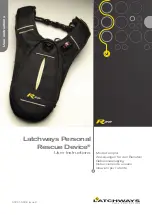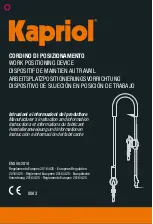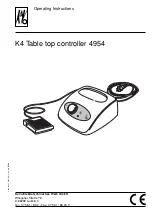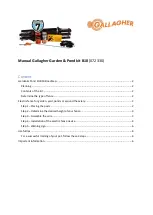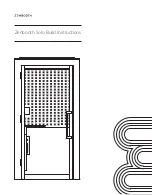
Check Before Operating
12
•
Cleans the engine while it runs
•
Eliminates gum-like varnish buildup in the fuel
system, which causes hard starting
IMPORTANT: Do not use fuel additives
containing methanol or ethanol.
Add the correct amount of gas stabilizer/conditioner
to the gas.
Note:
A fuel stabilizer/conditioner is most
effective when mixed with fresh
gasoline. To minimize the chance of
varnish deposits in the fuel system, use
fuel stabilizer at all times.
Filling the Fuel Tank
1.
Park the traction unit on a level surface, lower
the loader arms, and stop the engine.
2.
Remove the key and allow the engine to cool.
3.
Clean around the fuel tank cap and remove it.
4.
Add unleaded gasoline to the fuel tank, until the
level is just below the bottom of the filler neck.
IMPORTANT: This space in the tank allows
gasoline to expand. Do not fill the fuel tank
completely full.
5.
Install the fuel tank cap securely.
6.
Wipe up any gasoline that may have spilled.
Checking the Oil Level
1.
Park the traction unit on a level surface, lower
the loader arms, and stop the engine.
2.
Remove the key and allow the engine to cool.
3.
Open the hood; refer to Opening the Hood, page
23.
4.
Clean around the oil dipstick (Fig. 4).
5.
Pull out the dipstick and wipe the metal end
clean (Fig. 4).
6.
Slide the dipstick fully into the dipstick tube
(Fig. 4).
1
4
2
m–4745
m–3219
3
Figure 4
1.
Oil dipstick
2.
Filler cap
3.
Valve cover
4.
Metal end
7.
Pull the dipstick out and look at the metal end.
8.
If the oil level is low, clean around the oil filler
cap and remove the cap (Fig. 4).
9.
Slowly pour only enough oil into the valve cover
to raise the level to the F (full) mark.
IMPORTANT: Do not overfill the crankcase
with oil because the engine may be damaged.
10. Replace the filler cap and dipstick.
11. Close the hood.
Removing Debris from the
Traction Unit
IMPORTANT: Operating the engine with
blocked screens, dirty or plugged cooling fins,
and/or cooling shrouds removed, will result in
engine damage from overheating.
1.
Park the traction unit on a level surface, lower
the loader arms, and stop the engine.
2.
Remove the key and allow the engine to cool.
Summary of Contents for Dingo TX 22306
Page 7: ...Safety 5 Slope Chart...
































